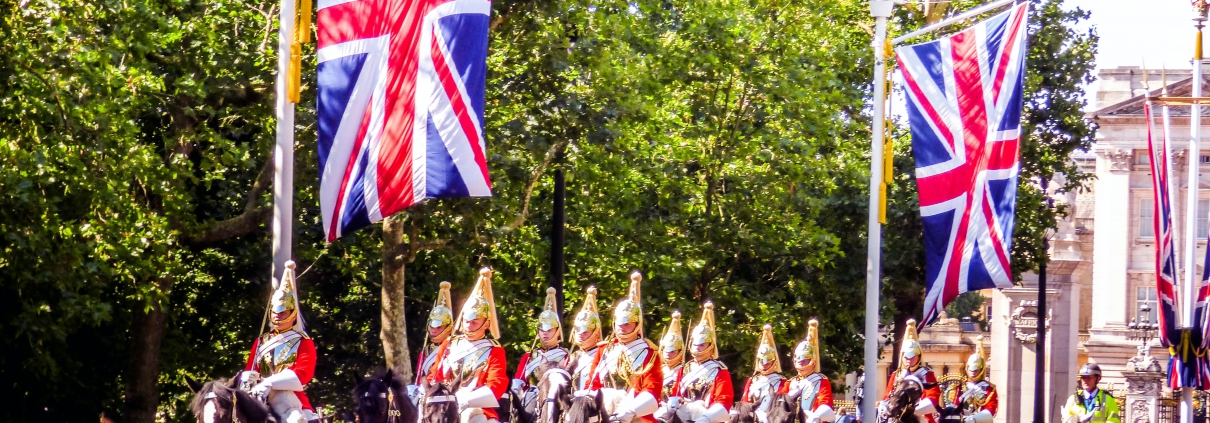An American Perspective on the Platinum Jubilee: A Reflection
By Erin-Leigh Hoffman, Intern at You Press
The reign of Queen Elizabeth II has hit a historic milestone with 70 years on the throne. The 96-year-old has become the longest serving English monarch in all of history, and the Queen’s Platinum Jubilee served as a several-day celebration of the life and reign of the Queen over the last several decades.
The Platinum Jubilee began Thursday 2 June with the Trooping the Colour parade where Queen Elizabeth made her first appearance alongside her family at Buckingham palace, and ended on Sunday 5 June where she made her second appearance at the end of the Platinum Jubilee Pageant. The members of the royal family also attended many of the events during the festivities.
As an American in the midst of the pageantry For Queen and Country, it was a new experience witnessing a celebration like the Jubilee for someone like myself and my peers here with me who grew up in the States coming to London during this time. Depending on the person, some may find it hard to understand the significance of the Jubilee, or others may find the Jubilee fascinating given that the United States has nothing like the Queen or monarchy and it is a historic cultural event to be in the middle of.
Even though attitudes about the Jubilee vary from the experience of being an American, these ideas are worth exploring to understand the perspective of an American in London during this time.
Growing up in the United States my whole life, I learned about the relationship between the States and England specifically from the American Revolutionary War which saw the United States break away from Britain and become a sovereign nation. We were exposed to educational resources like textbooks that would paint the relationship between the nations as very hostile, especially because of King George III which represented oppression to the colonies in the new world before they became America.
This resentment aimed at monarchy that was taught to us in our schools laid the foundation for how many in the States were socialised to view the English monarchy. As per my experience as a high school graduate and upperclassmen college student, these ideas were rarely challenged unless a student was enrolled in an upper-level class on politics at a high school or university.
It is understandable how this sort of education may lead to people being disinterested in what is going on with the English monarchy at any given time, especially when there is a major celebration centred at the main figure head of the monarchy right now, Queen Elizabeth II.
On the flipside of this, there may be a lot of curiosity about this event as the States have no such leader that has been a symbol of the country serving for 70 years, and this is an event being covered in the States in the media daily as is in the United Kingdom. The leader of the United States, the President, is elected or re-elected every four years with a total of eight years in power possible. Much of the decision-making in the States comes from the legislative houses that draft and vote on bills presented to them that the President can sign into law or veto. Since he or she is the leader of the land, and is frequently replaced and divisive based on party lines, the President isn’t a figure like Queen Elizabeth as a main-stay of the country that is designed to unify rather than divide like the role of the United States President typically does.
Since the States do not have a figure like the Queen, she and the royal family as a whole are a fascinating phenomenon that gets attention from the U.S media whenever there is news from the royal family. This is why the Jubilee in the States received so much airtime since people are interested and would like to know more about it, given that this is another major milestone in the reign of the British monarch.
As an American in London during this Jubilee, I’ve seen the difference between opinions of the Jubilee from my American counterparts, and from those who live in the United Kingdom and feel a certain way towards the Jubilee. My American peers were interested in seeing the celebrations of the Jubilee citing the fact that this is a once-in-a-lifetime event to live through in the epicentre of where it is happening. Some of my other American peers were more disinterested, and left central London for elsewhere to enjoy the bank holiday.
Now that the Jubilee has come to a close, it is a time to reflect on the last few days in a deeper way to examine the difference in interest in the Jubilee from the perspective of an American in London during this historical time.





